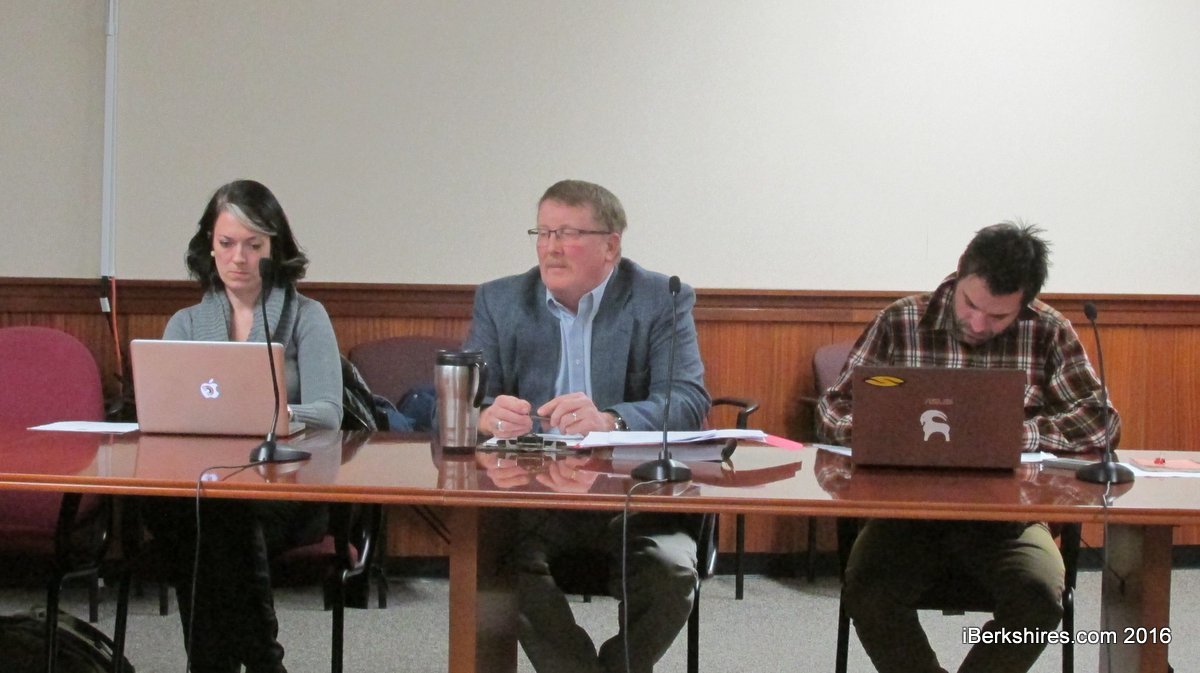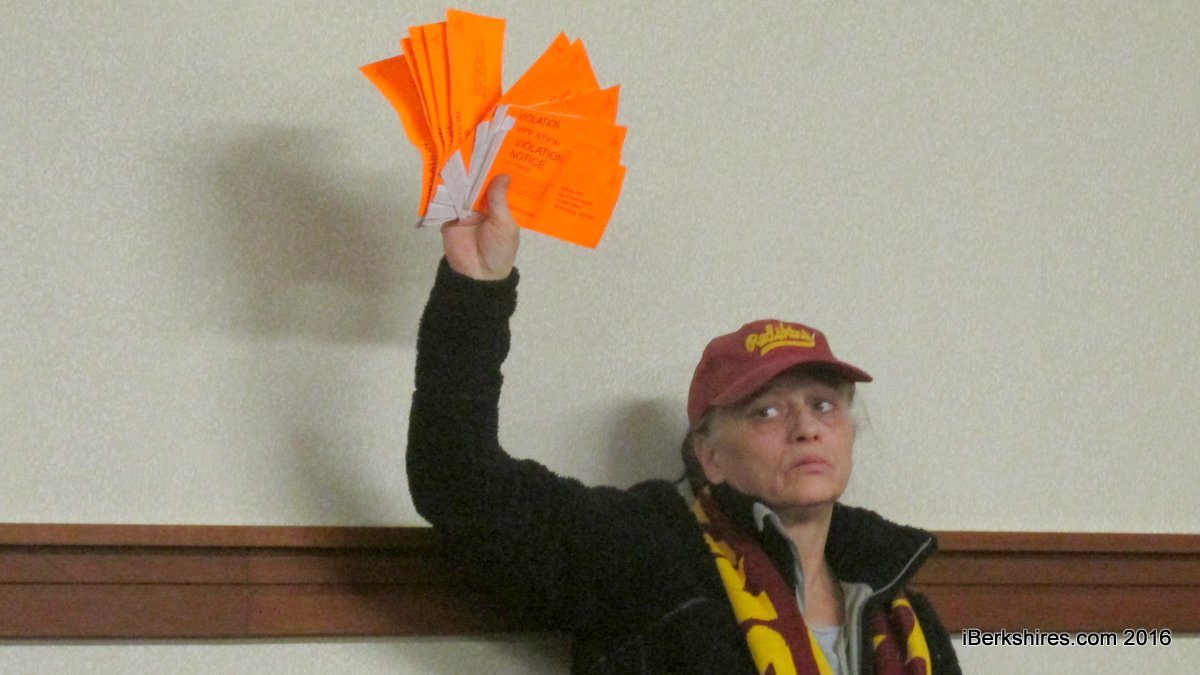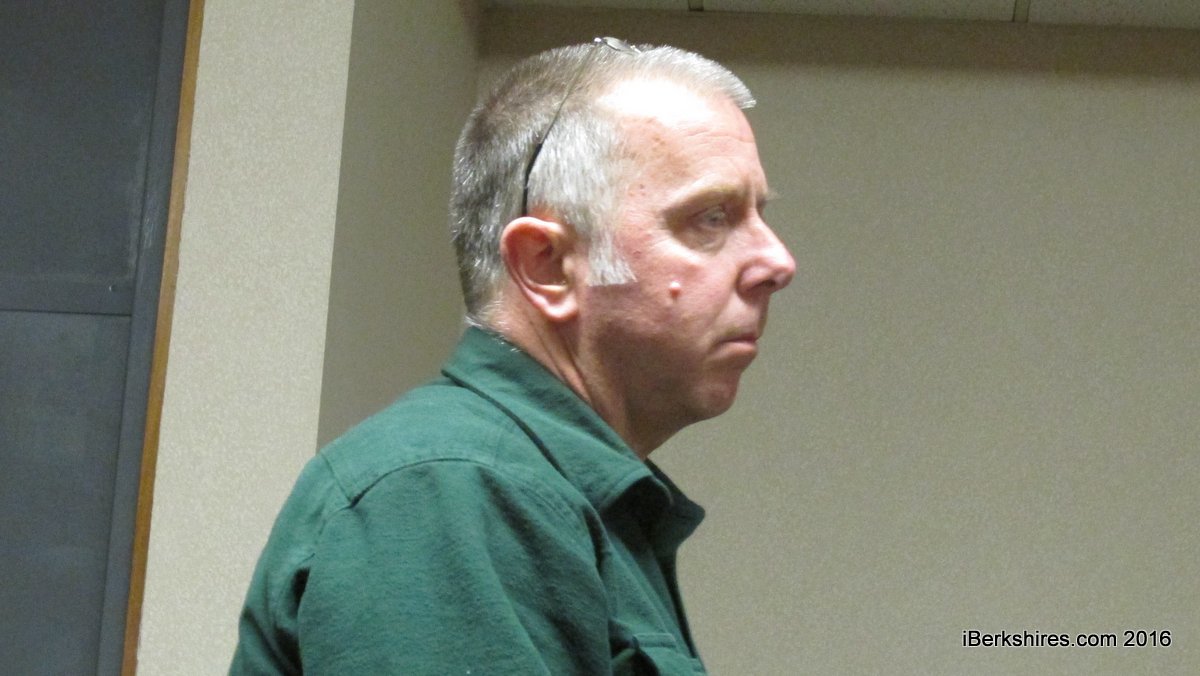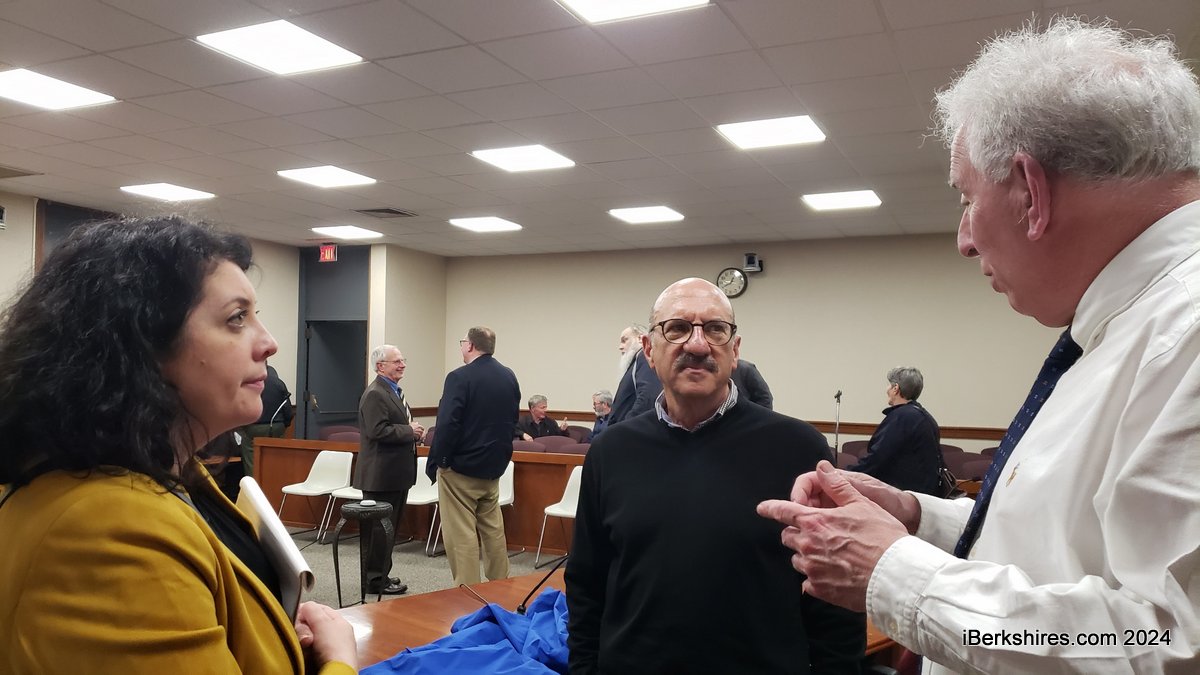

North Adams Committee Recommends Keeping Winter Parking Ban
NORTH ADAMS, Mass. — The Public Safety Committee is recommending no change in the winter parking ban despite pleas by two residents who have no place to park.
Aleksandr Lisser of Veazie Street had requested through City Councilor Joshua Moran that the city revise its winter parking policies, saying the lack of parking at his home makes the regulation impossible to follow.
But the Traffic Commission last week found no reason to change the policy, citing public safety concerns, and the Public Safety Committee on Monday agreed.
"This is a public safety issue for many, many, many people in this city," said Chairman Robert R. Moulton Jr. "You don't allow parking because [the streets] are inaccessible. ... the streets are narrow, the snow banks are piled up ... The rules are made for all the people."
The winter parking ban goes into effect in November and runs through May, although the mayor was given the discretion to end it earlier as conditions required some years ago. The ban does not allow parking overnight on any city street during that time period and is similar to bans in other communities.
Committee members cited the narrow, often steep roadways in the city and the difficulty for plows and emergency vehicles to get through when snow banks begin to accumulate as the reason for the ban.
Police Director Michael Cozzaglio, who attended the meeting, said he could not speak for the Public Services Department but thought its commissioner would agree.
"The Department of Public Works will tell you how tricky it is navigating that heavy equipment," he said. "We investigate city plows taking off mirrors every year... why are [cars parked] on the city streets?"
Lisser and another Veazie Street resident, however, said the ban was extremely burdensome since there was no place to park their vehicles near their homes.
Lisser said it didn't make sense to have parking during the day and not at night.
"The day doesn't create a situation so why does the night?" he asked. "We're given the rule but no provision ... there is no public parking to provide for residents and no way to comply with the law."
He offered some examples of hardship, saying a few were real, of elderly people unable to get to their vehicles for every day needs and emergency situations in which a homeowner could not get to their car because it had to be "parked outside city limits."
At one point, Lisser claimed an ambulance had been unable to get to an ill child for 45 minutes and the parents did not have their car to take him to the hospital because it was parked far away.
Moulton, president of North Adams Ambulance Service, took exception to that, saying he had not heard of an ambulance ever taking that long and asked for more information.
Cozzaglio said he could give examples of ambulances, plows and other public vehicles being stuck or unable to get to an emergency because of cars illegally parked in the road. Others at the meeting spoke of the difficulty backing out driveways because of parked cars, and motorists parking on sidewalks forcing pedestrians into the street.
"I'm sorry people don't have parking but it's not a city issue," said Councilor Nancy Bullett, who attended the meeting.
Traffic Commission Chairwoman MaryAnn King said public parking at the Center Street and St. Anthony Municipal Lot was available for a monthly fee of $15 and $35, respectively.
Lisser, however, thought the city should provide the parking or lift the ban. The other Veazie Street resident, a woman, said she had tried to rent a neighbor's secondary driveway and a spot from an apartment building near her without luck. She thought the city should put pressure on the landlord; committee members said that was not their role.
Committee member Kate Hanley Merrigan said Northampton, a city of 28,000, uses an alert system for during snow emergencies instead of a parking ban. According to its page, it uses flashing blue lights at intersections and CodeRed to alert motorists.
Cozzaglio said it would be difficult to enforce a storm-by-storm ban. Now, everyone knows the ban is always in effect.

"You're trying to locate people because the plow is stuck and we're banging on the door. It's quite a headache," he said. "The most efficient way, the safest way, is to keep everyone off the street."
Northampton's system includes ticketing and towing of scofflaws — 820 cars were towed last year, and 67 during the Dec. 30 snow, according to the Daily Hampshire Gazette.
The committee noted that this has been an unusually snow-free winter. Cozzaglio said officers took that into consideration in the fall and gave out warnings at first rather than tickets.
The Veazie Street resident waved a bunch of orange tickets claiming the reverse, but Cozzaglio said those were for parking on the sidewalk, which is always illegal.
Joseph Shaw, who also lives on Veazie, said he had a parking spot but was more worried about the damage being caused by people parking on the sidewalks. He gave the committee photos of the damaged sidewalk across the street from his house.
"I sympathize with people who don't have a place to park but I don't want my tax money going to pay for destruction," he said.
The committee tossed around other ideas, like forcing real estate agents to put in writing a lack of parking, opening up other lots for parking, or going to an emergency-only system. Each was somewhat dismissed because of logistics, legality and equity. King pointed out that other citizens were paying to park in municipal lots and it would be unfair to allow others to do it for free.
"I don't think I've heard anything that would make me change my mind," said Moran.
Moulton said if a lot of people have an issue with the off-street parking, they could start a petition to bring to the City Council to seek solutions.
"This issue is done for public safety, it's done for the greater good of the whole," he said.
Tags: parking ban,
















